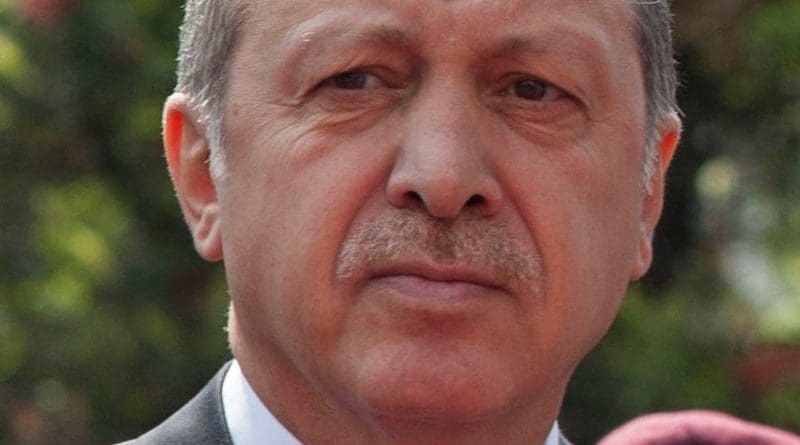Turkey: Erdogan Faces Balancing Act In Cabinet Selection
By Arab News
By Menekse Tokyay
Following Sunday’s twin votes that marked Turkey’s switch to an executive presidential system, President Recep Tayyip Erdogan is set to announce his next Cabinet, which is likely to have a nationalistic but also a technocratic tone.
As part of its work on the Cabinet list, the AKP’s central decision-making bodies will convene on June 29 in Istanbul. The new Cabinet structure is expected to be shaped before July 8 when the final results of the elections will be announced.
As a reward for their support during the election campaign, Erdogan is expected to provide his Nationalist Movement Party (MHP) ally with seats in the Cabinet.
The MHP and AKP alliance won 53 percent of the votes in the parliamentary polls.
The probable presence of figures affiliated with the MHP in the new government is considered a signal of Turkey’s slide toward a hard-line domestic and foreign policy.
In his victory speech, Erdogan signaled the continuation of Turkey’s military operations in northern Syria against Kurdish YPG militia.
The MHP and AKP agree on a security-oriented approach against Kurdistan Workers Party (PKK) militants at home and against Syrian Kurdish fighters.
Dr. Muharrem Eksi, vice head of international relations department at Kirklareli University, predicts that Turkey’s new minister of foreign affairs will be Ibrahim Kalin, the current presidential spokesperson, and that he will have the support of the MHP.
“Kalin was the person who made the most strategic foreign policy statements even under the foreign minister term of Mevlut Cavusoglu,” Eksi told Arab News. “He would probably bring out a new vision to Turkey’s foreign policy.”
According to Eksi, a former colleague of Kalin at pro-government think-tank SETA, Turkey needs to implement a soft balancing strategy, which aims to improve relations with the US, EU and Israel in a way that is not at the expense of its relationship with Russia.
Kalin recently criticized a US congressman who said on his social media account that he would not be celebrating Erdogan’s latest election victory.
“President Erdogan certainly does not need your @RepAdamSchiff congratulations. Turkish people have spoken up. You need to shut up,” said Kalin in a tweet on June 26.
MHP’s head Devlet Bahceli and Erdogan met on Wednesday night.
Although agreeing on a nationalist tone in their political discourse, the two leaders diverge on some issues.
“The new government’s composition hinges greatly upon the anticipation on the side of the presidency on how the balances between the AKP and MHP will unfold and what the implications of that interaction upon the future of Turkish politics will be,” Ahmet Kasim Han, political scientist from Istanbul Kadir Has University, told Arab News.
According to Han, the perennial decision of the executive branch is whether to continue the consolidation of the polarization strategy or to change toward a more inclusive and soft governance.
“The benchmark of the Cabinet composition will be the strategy to follow ahead of the upcoming local elections in late March 2019,” he said.
The AKP rule has always accorded great priority to the municipal elections because municipalities are important channels for creating links with the grassroots.
The Cabinet will also host new figures from the business, culture and sports sectors.
Well-known businesspeople are expected to be present in the country’s new economic team. It will be a message sent to the credit rating agencies such as Moody’s, which announced that economic policies of the new government will determine the country’s possible downgrade of sovereign credit rating.
During his electoral campaign trail, Erdogan has pledged to tighten control on central bank’s interest rate decisions in an economy that is facing a meltdown for more than a year.
The Cabinet composition, when it is finalized, is likely to show a change of image on the AKP side, which is aware of its under-performance in the parliamentary polls where it failed to get the simple majority in the Parliament, taking only 43 percent.

